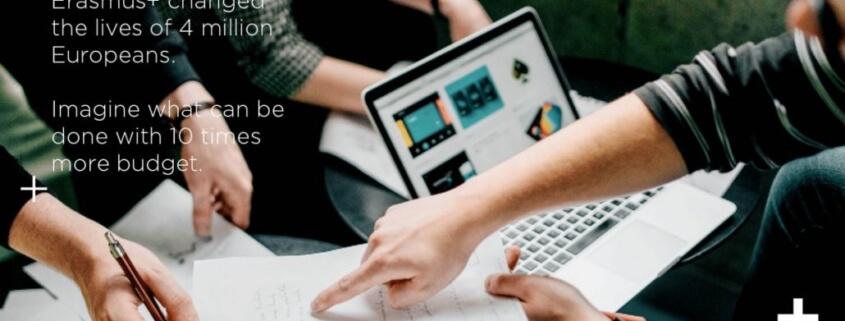Erasmusx10 campaign launched
CEC European Managers has joined the Erasmus+ Coalition and supports the Erasmusx10 campaign for more Erasmus+ budget. The Erasmus + programme offers a unique opportunity for younger and older adults to acquire international experience and necessary skills in a changing world of work. More than ever, it is crucial to be able to take new perspectives – in the job and as a citizen.
 Managers are the first ones to share knowledge and best practices with their employees and should therefore, among other groups, be included in a programme designed to encourage lifelong learning. Besides deciding upon employee’s mobility and trainings, managers are undergoing a change in their leadership role: more and more, they act as facilitators, designers and connectors (also find our dossier on “the leadership of the future”).
Managers are the first ones to share knowledge and best practices with their employees and should therefore, among other groups, be included in a programme designed to encourage lifelong learning. Besides deciding upon employee’s mobility and trainings, managers are undergoing a change in their leadership role: more and more, they act as facilitators, designers and connectors (also find our dossier on “the leadership of the future”).
Integrating a “train the trainer” approach, alongside mentoring programmes (find out more about our Mobility and Mentoring programme), could therefore have leveraging effects for circulating new ideas and skills – necessary for a more inclusive and sustainable future. “Lifelong learning has to be mainstreamed and extended to all categories of occupations” said Ludger Ramme, President of CEC European Managers.
Earlier this year, during the 30th anniversary of Erasmus+, European Commission President Juncker invited the institutions to be nine times more ambitious with regards to Erasmus+. The Juncker declarations follow the political will of a consistent increase of the Erasmus+ budget expressed by several heads of State and governments and expressed at the Rome Summit on the 60th anniversary of the treaty.
The campaign has been launched in September 2017 and is coordinated by the Lifelong Learning Platform, the European Youth Forum and Eurodesk. It will run mainly over the internet for the coming months, and it is aimed at positively influencing the outcomes of the next Multiannual Financial Framework negotiations, due to happen in June 2018.
Why 10 times more? More funding can support the following aims:
- Widening its access for a truly lifelong learning programme: To widen its access to a larger group of beneficiaries from all ages and different education purposes, and
to respond to the high demand of smaller organisations and individual citizens that struggle to access and be successful in the current programme. - Strengthen its social dimension for better inclusion: To increase Erasmus+ outreach and support to the most vulnerable and marginalised groups, thus addressing the needs of all learners and their diverse backgrounds and aptitudes, including people with disabilities and from disadvantaged socio-economic background.
- Empowerment of citizens through education: To contribute to societal progress by promoting shared civic values and active citizenship through mobility, volunteering and cooperation projects.
- Competitiveness and employment: To support the economic growth and employability providing opportunities to acquire and recognise basic and transversal
skills, competences and knowledge. - Quality mobility experience and projects: To improve the quality of learning mobility experiences and transnational partnerships by providing the necessary funding and tools to beneficiaries.
- Effective management and evaluation: To increase the programme’s flexibility and effectiveness to meet the needs of beneficiaries, while modernising methodologies and processes.
- Peer Learning, Capacity Building and Exchange: To support cooperation among Member States and education stakeholders that will contribute to the modernisation
of education and lifelong learning systems through peer learning and capacity-building facilitating policy reforms in line with Member States’ needs. - Cross-sector and multilevel cooperation: To strengthen the support to civil society organisations as intermediaries between the European and grassroots levels
as a way to ease citizens’ access to the opportunities offered by the Programme, and to encourage partnerships with other stakeholders active in the field of education,
training, youth and sport. - Education as a driver for Sustainable Development Goals: To raise awareness and enhance the implementation of the SDGs in Europe using education as the
most powerful and proven vehicle for sustainable development thus making lifelong learning a reality for all. - Internationalising education and lifelong learning systems: To reinforce the global dimension of the programme and the internationalisation of education institutions and different learning environments in order to build bridges with societies and economies across the globe and therefore being more competitive and resilient in a globalised world.
Visit the campaign website and sign the petition for more Erasmus+ budget : www.erasmusx10.eu




